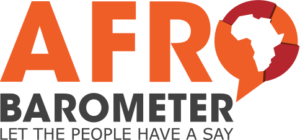Seven countries in Africa have experienced successful coups since 2020, notes CSIS (above).* Six of the countries that have experienced military takeovers in recent years – Guinea, Mali, Burkina Faso, Niger, Chad, and Sudan – run from coast to coast, forming what experts call a “coup belt.” On August 30, Gabon became the seventh country to undergo a coup, when the Armed Forces of Gabon overthrew president Ali Bongo.
In Gabon, the main opposition leader has described President Ali Bongo’s overthrow as a “palace coup”; Brice Nguema, the military leader who led the uprising, is Bongo’s cousin, and has allowed the removed president to travel without restrictions, Al Jazeera’s Kent Mensah reports.
 It is an assessment with which Dave Peterson, senior director of the Africa Program at the National Endowment for Democracy (NED), said he agrees. The Gabon coup was “a change in hats”, nothing more, Peterson told Al Jazeera:
It is an assessment with which Dave Peterson, senior director of the Africa Program at the National Endowment for Democracy (NED), said he agrees. The Gabon coup was “a change in hats”, nothing more, Peterson told Al Jazeera:
Yet, in other countries, regional instability has played a major role in creating the conditions that have allowed military takeovers to succeed – especially since 2011 and the violent overthrow of Muammar Gaddafi in Libya.
“Clearly, if you want to go back in terms of events, the collapse of the Gaddafi regime in Libya began to exacerbate the insecurity in Mali and across the Sahel,” said Peterson. The chaos and power vacuum in Libya led to a proliferation of weapons and armed fighters across the Sahel region, including into northern Mali.
 A vast majority of people from 34 African countries polled by the independent political survey outfit Afrobarometer in September 2022 said they believed regular, honest and open elections were the best guarantor of their interests, Mensah adds. But only 44 percent said elections help voters remove leaders who don’t do what the people want. In 19 countries polled regularly since 2008-09, sentiments against elections as enablers of change have risen 6 percent.
A vast majority of people from 34 African countries polled by the independent political survey outfit Afrobarometer in September 2022 said they believed regular, honest and open elections were the best guarantor of their interests, Mensah adds. But only 44 percent said elections help voters remove leaders who don’t do what the people want. In 19 countries polled regularly since 2008-09, sentiments against elections as enablers of change have risen 6 percent.
“The danger is that all these coups show the inability of the international community to restore democratic rule,” said Maja Bovcon, senior Africa analyst at London-based risk firm Verisk Maplecroft. “I don’t have much hope that this time round things will work differently,” she told Reuters.
A UNDP study dated July shows how the costs add up, Reuters adds. It estimated Guinea’s 2008 coup and one in Mali in 2012 wiped a combined $12-$13.5 billion off the two countries’ economies over a 5-year period. This represented 76% of Guinea’s 2008 gross domestic product and almost half of Mali’s 2012 GDP, the study calculated.
*Mvemba Phezo Dizolele, Director and Senior Fellow, Africa Program; Kamissa Camara, Senior Advisor for Africa, United States Institute of Peace; Beverly Ochieng, Senior Digital Journalist and Africa Specialist, BBC Monitoring; Jeffrey Smith, Founding Director, Vanguard Africa; Gilles Yabi, Founder and CEO, the West Africa Citizen Think Tank (WATHI).







